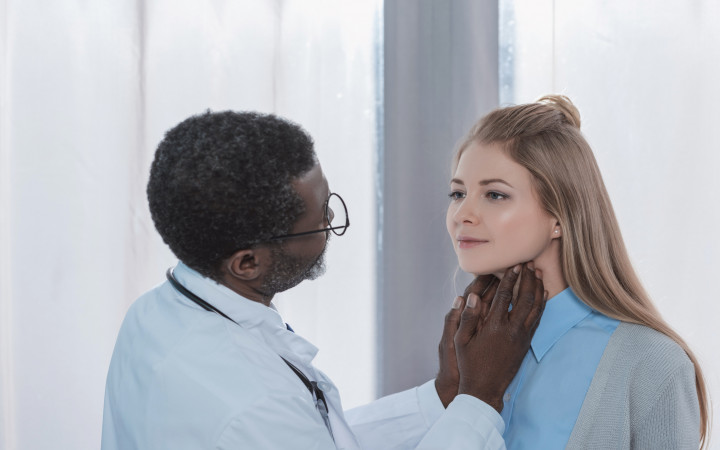Today’s Wonder of the Day was inspired by Jayla. Jayla Wonders, “Why do we have lymph nodes and what are they for?” Thanks for WONDERing with us, Jayla!
It starts with a cough. Soon, you have a runny nose. By the time the fever hits, there’s no doubt about it—you’ve caught the flu. If you need more evidence, look no further than your sore, swollen lymph nodes.
Most people don’t think much about their lymph nodes until they’re sick. But they’re always there, working hard to support your immune system. In fact, your body has hundreds of them. They’re spread throughout your head, throat, chest, abdomen, and limbs.
What exactly do lymph nodes do? Think of them as filters. They help remove germs from lymph fluid, a clear, watery substance that helps keep your body’s cells clean. Lymph fluid and lymph nodes also contain white blood cells, which help your body fight infection.
Lymph fluid flows through vessels that connect to the lymph nodes. These are similar to blood vessels. They carry the fluid throughout your body as it’s filtered by each lymph node.
Have you ever experienced a swollen lymph node? If so, you know they can be uncomfortable and even painful. Often, lymph nodes become swollen due to an infection by bacteria or a virus. Swelling may also be caused by stress.
Common illnesses like ear infections, the flu, and strep throat cause swelling in the lymph nodes. Chronic conditions like rheumatoid arthritis, lupus, and HIV can also be the cause. In some rare cases, swelling of the lymph nodes may be caused by cancer or leukemia.
What should you do if you notice a swollen lymph node? Talk to an adult family member. They’ll be able to help you decide whether you need to see a doctor. Most often, doctors will start by touching the skin above the swollen nodes to see how inflamed they are. The location of the swollen lymph nodes can help them learn which parts of the body may be affected.
Sometimes, a doctor may use a test, such as an x-ray, to find out why a lymph node is swollen. In other cases, they may recommend or prescribe medicine to treat the illness that caused the swelling in the first place. Most often, though, they will suggest letting the swelling run its course. When the body fights off the infection, the lymph node will return to normal.
Being sick is no fun. A swollen lymph node can add to the discomfort. In most cases, the issue can be cleared up with treatment. But it’s always important to listen to your body—and to speak with a trusted adult or doctor when you’re unsure of what to do.
Standards: NGSS.LS1.A, CCRA.R.4, CCRA.L.3, CCRA.L.6, CCRA.R.1, CCRA.R.2, CCRA.R.10, CCRA.W.2, CCRA.W.4, CCRA.L.1, CCRA.L.2, CCRA.SL.1, CCRA.SL.2




